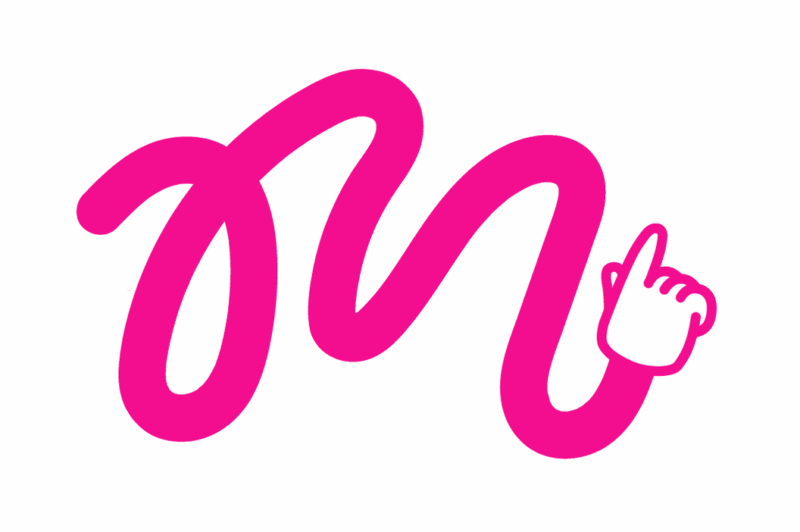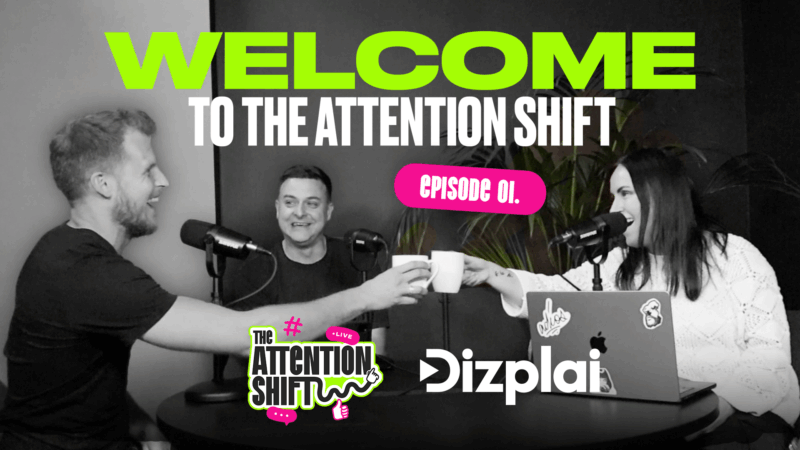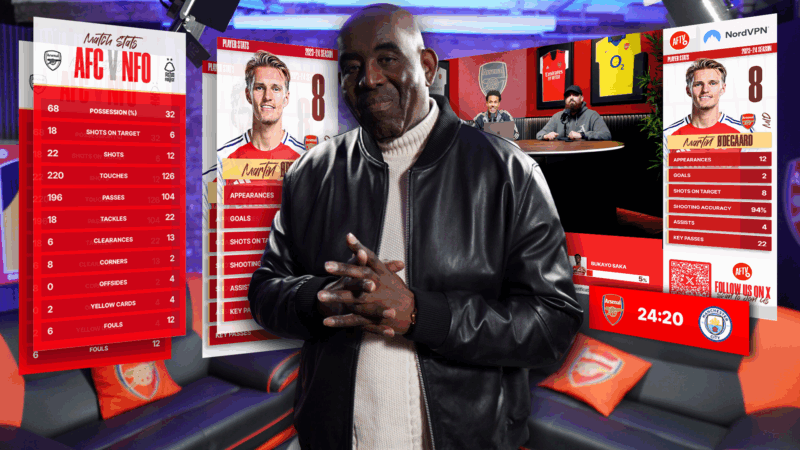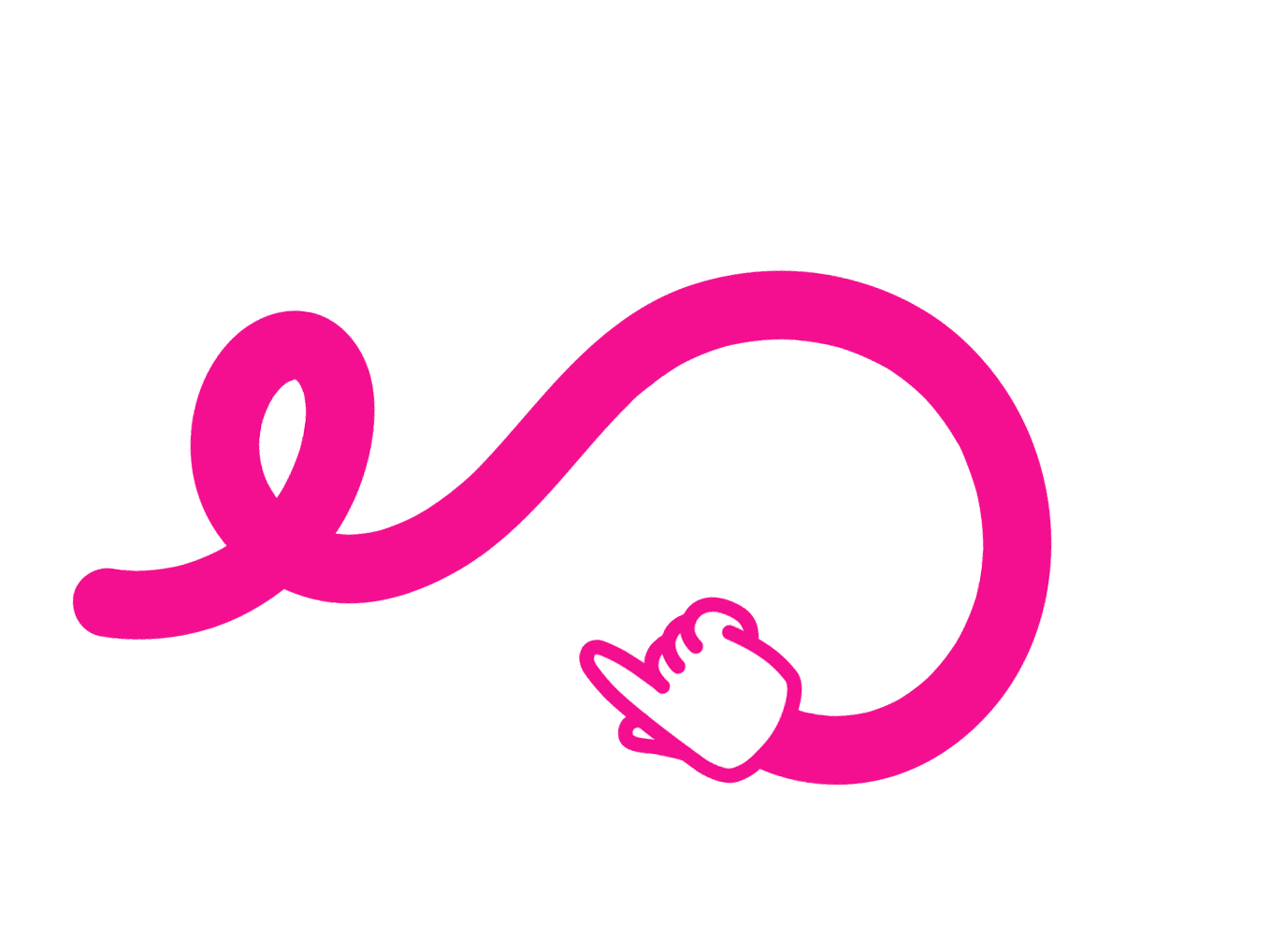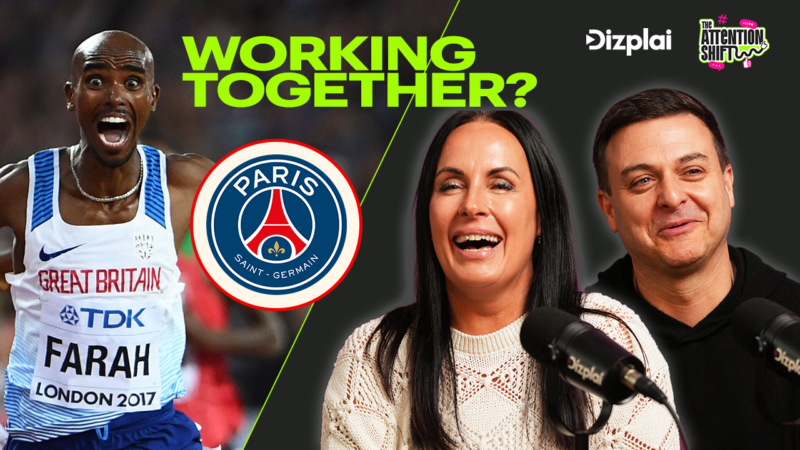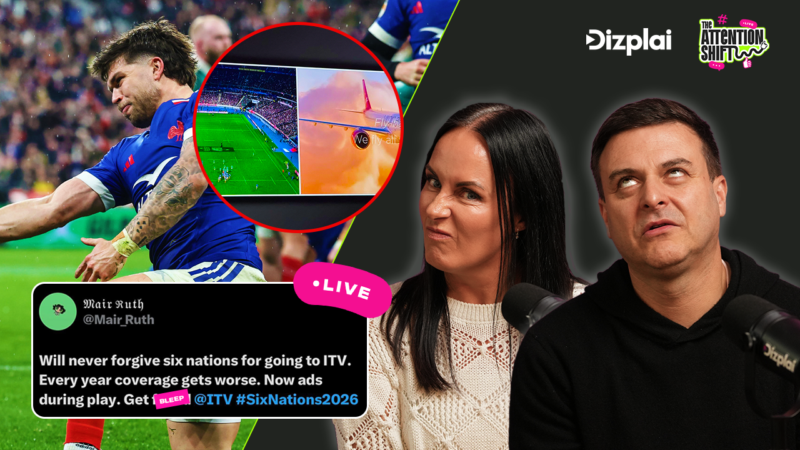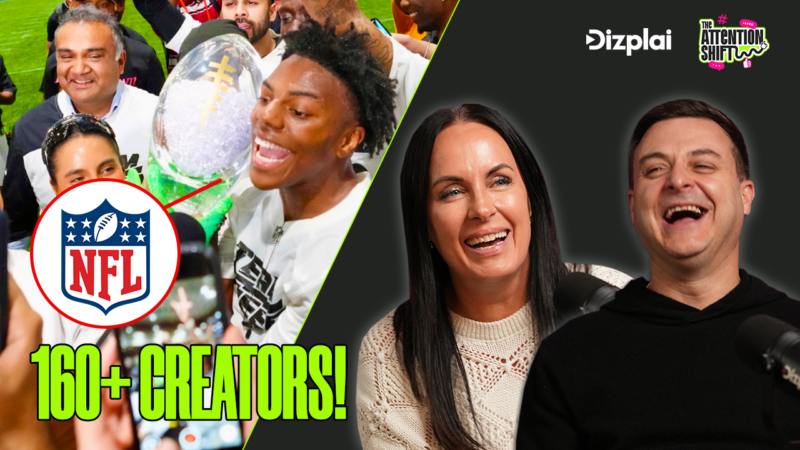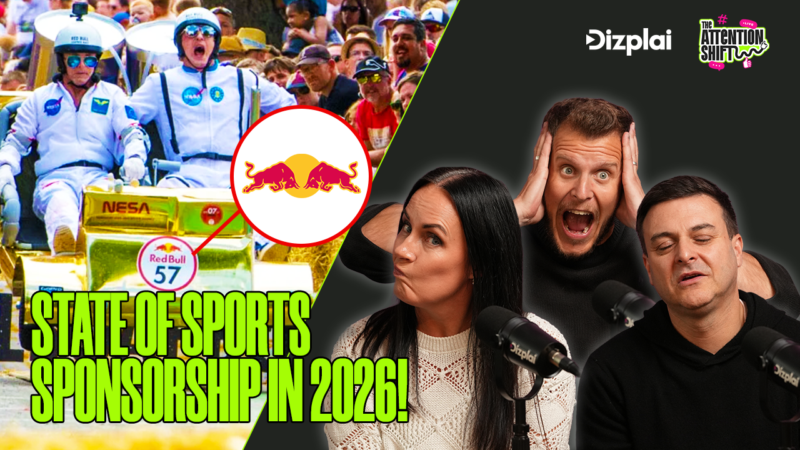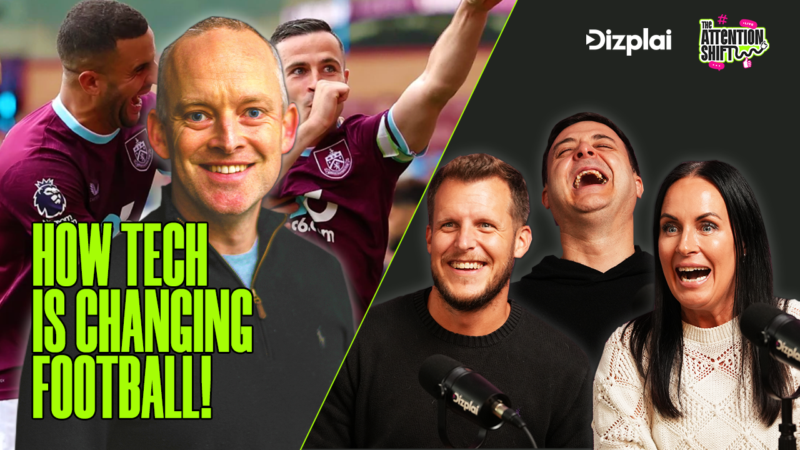
Summary
- DAZN drops $1B on FIFA Club World Cup—but the real bet is on 100 creators with 32M followers.
- Creator houses in Miami, docuseries like Through Ball, and a global content blitz: sports media’s influencer gamble
- The billion-dollar question: Is this the future of fandom or just outsourcing to Gen Z?
- Why legacy sports broadcasters can’t crack the youth code—and how creators are filling the gap
- From broadcast rights to creator-led storytelling: how the attention economy is reshaping sports
- What happens when influencer culture collides with elite football? A breakdown of the risks, rewards, and what success actually looks like
Transcription
Welcome to The Attention Shift, a podcast where sports media gets debated like a VAR decision.
Passionately, chaotically, and with none of us fully agreeing on the outcome, right?
Inspired by something that I read this week about DAZN and the Club World Cup
that’s happening now, DAZN has done a deal with a load of creators.
They’ve launched this global football creator programme designed to build fan engagement.
100 digital creators signed up, total audience of 32 million.
Now, we know a creator isn’t going to save sport.
Everybody’s looking to creators as the great saviours.
Rights owners don’t really know how to talk to social first fans, but creators do.
But why are they relying on creators so much?
Is it sustainable?
Is it going to work?
Is it going to fail?
What do you reckon?
That’s loaded.
That is a loaded question considering we all write about this all the time on LinkedIn.
This feels like a very loaded question.
Do you want to go first, Lee?
You look like you…
I will go in.
No, I think, as we all know, it’s a good idea, right?
Is this, does this stink, smell a bit of desperation?
Probably.
I mean, there are two former employees of that.
We’ve both worked for DAZN, so I feel we can say that.
It’s not their problem.
I think it’s the Club World Cup’s problem.
I think it’s the FIFA problem.
I think, yes, you need creators.
I mean, we’ve talked about it when they kicked it off with the Club World Cup.
They’re doing all some cool stuff.
32 million does not seem a lot of followers for a world, for FIFA.
For a hundred creators.
For a hundred creators feels low.
I think the bigger question which you asked is, are they there to help, say,
sport and football?
Are they the only way of doing it?
I think it’s not, you know, if you’re just relying on creators, it’s not a good model.
No, why are they so powerful though?
Why is everybody looking to creators as a sports business?
I feel like I’m interviewing you two.
But I know you’ve got views on this.
Why are they looking to creators?
What do they do that the sports media business isn’t able to do?
I think they’re authentic.
I think they have a conversation with their, I was going to say,
all audience, fans, followers, all of the above.
They think about the way that they create content with the idea that the audience will
help them to drive the editorial narrative.
So, you know, I’ve had this conversation with friends of mine at various age ranges
who I wouldn’t even think will watch that kind of content.
And they said it feels like they’re in a coffee shop having a conversation or down
the pub.
It’s more conversational.
It’s more community orientated.
So look, it makes sense that they go to these kind of people to help them to
distribute different types of content because they talk like fans.
They are fans.
That’s where they came from.
Everyone can have all their different opinions on Speed and Mark Goldbridge
and Robbie from Arsenal Fan TV in terms of how they do things.
But ultimately, from my experience being some of these people,
you know, they’re passionate, they’re knowledgeable and they get what fans want.
For me, what it shows is that sports media still really is in broadcast mode.
And when you think about what the word broadcast actually means,
it means talking to, shouting to the audience, which what you’ve just said is true.
You know, creators have grown up on platforms, particularly YouTube,
where they have dialogue and it’s a two-way conversation.
And it comes back to this now, particularly with younger people,
but all of us, we want this participatory relationship with media, don’t we?
A sense of belonging.
We don’t want to just receive the messages all the time.
So this is what creators have done.
But why is sports broadcast?
Why do they struggle with that?
Is it just that they’re set in the ways?
It was interesting because I’d read the same thing
that we were chatting about as soon as we saw it, right?
And the release, and I don’t know if this was changed afterwards,
but it talked about impressions and it didn’t talk about engagement.
Yeah.
Because they’re still, I think the traditional ad world, right,
is very much about reach and not so much about engagement.
And that’s what ad money is being paid on.
And I think ultimately, why are they chasing after this?
Because a lot of these people have reach, right?
And then when I look at it and you look at, you know,
the number of creators and the actual reach,
someone like Mark Goldbridge who’s not part of that as far as I’m aware,
I don’t understand why someone like that is then not part of that conversation.
And obviously he’s not here to answer for himself.
And at some point I’m sure we’ll be able to get him on to talk about what he does.
But I think he was telling to me that,
the impression and not necessarily the engagement side of things.
But that’s it, isn’t it?
I think that’s the point is, is that you said it, Joe.
Traditional broadcast is broadcast in a single way.
It’s broadcast in a single commentary.
It’s a lean back experience.
And it’s not changed for the last 30 years in terms of the way that it’s sent to you.
Then you’ve got this new generation, or not just new generation,
you’ve got people like Mark, right?
Who are creators who are having a conversation,
which you used to have down the pub, right?
And I think that’s it, right?
This is the same difference was it used to go down the pub to watch the game, right?
That was our way of going to watch the football on a Saturday, right?
You go down the pub with your mates, there’ll be a lot of other people in the bar.
You’d get attracted to them.
They might be rival fans.
You have a bit of a laugh.
That’s now happening on social, right?
Or YouTube or wherever it is.
Whereas it doesn’t happen in the pub anymore.
And if you’re a broadcaster, you’re still delivering it to your TV at home or to a pub.
That’s now empty.
And I think that’s why it resonates.
I think it’s that sense of belonging, that sense of community and getting your voice heard.
And it’s interesting because you’ll hear some people saying,
you can’t build community on social channels.
Well, that’s rubbish because what you’ve got to do is watch Goldbridge
and he’s reading his super chats
and he’s responding to people who are posting messages.
And that means something, right?
People will pay just so they know it’s a marked response to them.
Yeah, completely.
And there’s such a reward in that.
But again, when you read those comments as well,
even if you’re not necessarily participating yourself,
you do feel part of that conversation.
I’ve been doing the same with Baller League.
I watched Baller League or I have been for the last 12 weeks on a Monday night on YouTube
and I have the comments just scrolling
because sometimes they’re just downright hilarious.
But again, you just feel part of it.
Everybody’s got an opinion, they’re talking about a goal or a decision.
And it’s like a virtual being in the pub with mates and it really adds to it.
But also you’ve got your phone, right?
So most people are now second screen, right?
Where they’re looking at the dates, you can get all your highlights.
Now people are experts, you know, or even if you’re a casual fan,
you can find something out pretty quick where you don’t need to be talked to
as a, you know, from a broadcaster.
Just this is what I need to tell you, you know?
And it’s like, that’s the bit I think that why they’re doing it is the right reason.
I think where you’ve kind of pre-texted at the beginning, which was,
are they doing this using content creators?
Is it the right move?
Yes, it is.
Are they doing it in the right way?
Are they delivering in the right way?
Are they doing it because they feel they should be doing it?
I think that’s probably a different question.
Are they implementing it in the way that we would do it essentially?
My worry is though, much as I love creators and the creator economy,
is this just outsourcing reach and engagement again?
Because you’ve got rights owners that traditionally have just given their media,
or sold their media rights to someone else, Sky Sports, TNT, whatever.
Now they’re doing the same with creators as a distribution channel.
Why do they not feel able to manage this kind of stuff themselves?
It either smacks of laziness, or it really belies the fact that they actually don’t know
how to reach their audiences.
I think it’s just the world is so vast now, and there’s so much going on.
I had a similar conversation with someone today about this.
It’s almost like the greatest time to be alive if you’re a content creator,
but also one of the hardest because there’s so many things you can do.
What’s the best thing to do?
What’s the best way to go?
The difficulty is for me, when I think about legacy media,
and we work with some of the legacy media organizations,
we do some really good stuff.
Obviously, they’ve got a structure they can put in place,
which bricks and mortar, people,
they have to produce things in a certain kind of way
because they’ve already invested in all of that.
That ability to then move at speed makes it really, really difficult for them,
but they’re trying.
Look, Sky’s trying with Baller League.
Baller League‘s been distributed, so it’s having its own channels.
It’s via KSI’s channels.
It’s via Mark’s channel, but also it’s going out on broadcast media, too,
in a linear fashion.
I don’t know what the number’s on, what the split is.
About a million, I think they got about,
roughly a million views on Sky, roughly,
and then you’re probably getting another million each per creator.
So on YouTube and Twitch, I think the last time I had,
they were averaging or something like that.
Yeah, it’d be interesting to see what they were in aggregate.
I mean, the concurrency, you could see the concurrence actually changing.
When Angry Ginga and United were playing, you’d see the concurrence go up.
But also what we need to look at as well,
and obviously we don’t access that kind of information,
is what is the demographic of the people watching it on Sky Linear versus those?
Because if it’s reaching an older demographic or a different demographic,
then they’re indexing where they need to index with ad money.
So potentially then it’s serving a purpose.
And like I said, look, we’ll never get those numbers,
but I assume that’s why they’re doing it
because it’s reaching an audience that they’re not currently reaching on their own channels.
Isn’t it the same reason why we podcast on YouTube and on your podcast providers?
Well, I think the interesting thing is I think what people are realizing now
is actually one doesn’t cannibalise the other.
Well, no, no, all boats rise.
And it used to be the case that you thought they was cannibalising.
But I mean, it was the same in my old world of kids’ media.
You used to think that if you put content on YouTube,
they weren’t going to be watching it on Nick Junior or on CBeebies.
And actually now there’s absolutely no evidence to show that that happens.
If anything, it helps everybody.
So I see no reason to believe that it’s not the same with sports media.
There’s a question of distance, I think, with creators as well.
Broadcast and traditional media is so far removed from the audience.
They schedule it, they dictate when you can watch it,
how many times you get to see it on repeat.
And then, but creators, it’s close, isn’t it?
It’s intimate.
It’s this parasocial relationship you have with a creator.
Normally through your phone screen at a distance of 10 inches,
it feels like you’re having a chat to a mate again.
It’s that proximity thing,
which I think more traditional broadcasters really struggle with.
I think about it as like one’s broadcasting,
yeah, another one’s casting broadly.
No, I’ve said that before.
But I think that’s the reality, right?
And I think, and look, and that’s all that broadcasting is, right?
It’s just casting broadly.
The difference being when you go on to these digital social video channels is,
it can be a community-oriented conversation
in the way that obviously broadcasting and traditional linear fashion
isn’t necessarily built for that.
And don’t get me wrong,
lots of people try to do different ways of doing it.
And look, we work with you too, doing that.
But that’s sort of the underlying difference that you find.
And the reality is, obviously, when it’s going out on these,
often free-to-air digital video social channels,
anyone can access it right away.
If you want to watch it on Sky, you have a subscription.
And the kid in the house might not have a subscription,
or the parents might not want to watch that particular thing
on the subscription box.
And they go watch in the room on an iPad or a mobile or a laptop.
People just feel like they’re being,
I think that’s part of the problem, right?
You feel like there’s too many subscriptions.
You’re being monetized all the time.
You’re getting told what you need to watch
and how you’re going to watch it.
And then you’ve got these creators who, like Mark,
who is a watch-along, who has no life.
You’re literally watching with him.
But you’re feeling part of it
because you don’t feel like you’re being fleeced.
You don’t feel like someone’s telling you what you want.
And I think maybe there’s, is there a question around,
and maybe the FIFA are trying to do the right thing,
but not done it right,
which is relinquishing your brand equity.
You know, like people are so protective
over their brands and their IP,
and actually they’re so scared of, you know, that’s,
you know, there’s, you know, like Mark
is probably not officially endorsed by Man United.
Let’s put it that way.
I reckon not.
Should he?
For them, he is, let’s, that’s a good example, right?
For them, he is a great ambassador.
Because he has the same view
as every other fan on a Saturday.
I know for a fact there’s a health of respect there
that ultimately, you know,
he does speak to a very large proportion
of Man United fans.
So ultimately, you know,
they’ve got to respect the fact
that he’s got a position that he’s built up.
I was going to say as well, like obviously
we had a semi-conflab back and forth
on IShowSpeed when he did the thing with…
Oh, Gianni Infantino.
And we disagreed on that, right?
Because I thought, look, right,
because it’s easy to kick FIFA and go,
oh, that fella looked forced.
But I thought, at least he did it, right?
Because many people talk about it
and don’t actually bother doing anything.
But I also stand on your point of view
because I was sat there thinking…
He was cringe.
Yeah, it felt like that.
Yeah, and then he inched back to his line
when I was…
What a bit of a surprise.
Gianni just arrived.
I didn’t expect you.
Oh, look, you’ve got the club well cut with you,
aren’t you?
I just had to pay extra respect, right?
He’s not just turning up.
But he did it right and he leant into it
and he was probably, I imagine,
when he was told you’re doing this,
don’t make me do that.
I mean, he did also see Trump, you know,
with the trophy and you’ve got him thinking,
Trump’s probably got no idea
what the football is anyway.
I mean, he’s trying lots of different angles.
Do you know what was nice about that
in amongst the cringe is,
I do think there’s a lot of people
that dismiss Speed,
but he’s a genuine football fan
and it comes across,
no matter what the level of cringe is,
when he looks at that
being the club well cut,
presented in the ball.
It was exciting, like a small child
when he started losing the plot like that.
Comes back to being genuine
and authentic, doesn’t it?
I mean, that’s such an overused word, that,
but it comes across
and I think that’s what people really relate to
because again, you know,
my focus group of one,
my 16-year-old football mad kid,
doesn’t relate to pundits in a TNT studio.
He relates to Speed.
He relates to Goldbridge
because they talk his language.
They communicate
in that kind of social first YouTube way.
But back to your point
about that kind of brand command
and control way of managing brands,
which for the past 20 years
has just been the way it’s been.
You know, you have brand managers
or whomever that dictated
the rules of engagement with the fans.
They run the style guides,
what you could do when, yeah.
And now we have UGC platforms
like Roblox and YouTube
where again, you talk about young people
demanding this participatory relationship with media.
They do want to remix it stuff.
They want to stitch.
They want to play in the sandbox,
which means if you’re a brand owner,
then you’ve got to let go.
And boy, that’s scary for a lot of them.
Perhaps too scary for some.
I know F1 is really conservative
with things like that.
And that’s, I think that’s,
that’s the point, isn’t it?
It’s a kind of that,
that relinquishing control.
But also like the,
the guess the worry of this stuff is
are they just doing it for attention?
Is this going to be something
that is sustainable,
that they’re going to sustain,
you know, pass the FIFA Club World Cup
into the World Cup
or any sort of FIFA thing?
Are they going to keep this program going
or is this just sort of like,
are they treating it gimmickly?
Yeah, yeah, yeah.
DAZN all specifically or, or, or, or right?
Both, both.
Because I think they’re both,
they’re both leaning in, right?
Like they, you know,
there was, there was a billion dollar deal, right?
That kind of happened with all this.
They’re both so internally tied together
that, you know, that’s, that’s kind of always,
I think that’s what people fear about this stuff.
I think that’s when people say,
oh, it’s just, it’s, you know,
is it just a flash in the pan?
It’s because are they going to commit to it
and go beyond it?
Are you actually going to commit
to a sense of belonging
and actually not just do this?
You’ve got the attention now.
Are you now going to follow this through,
get some serious belonging
and create something that’s sustainable
for when it comes around in four years time,
you’ve now got this massive community
that you’ve built over four years
to keep it engaged
and keep people excited about it?
Or are you just going to after it all goes,
oh, that was fun.
Oh, we’ve done so well.
Here’s some great numbers, you know.
And I don’t know,
but, you know, again,
when Gianni Infantino
turns up on the IShowSpeed stream,
for me that felt very gimmicky.
Yeah.
It doesn’t feel like
they’re really investing in creators.
But at least they did it.
At least they did it.
I get it.
I’m like, all right.
I’ll acknowledge that.
Because they’ve not done it.
Yeah.
No, but to your point,
I think you don’t speed run it.
It’s not a quick win.
You know, you go and sign up
a hundred creators like DAZN has done
and think that that’s it.
You know, that’s the panacea.
It’s all fixed.
And then walk away again.
Because again, you’ve got YouTube
and social first fans
whose radar is so finely attuned to that.
They will see that that’s decent jealous.
They can smell it a mile away.
And yeah, I think that’s a really good point.
What I am interested to hear from you
is whether you think
it’s going to lead to subscriptions.
Interesting.
Well, they can’t sell tickets.
Be interested if they sell some.
Well, not for this.
It’s all free.
I mean, I have been watching
some games on there.
And obviously you can watch
the quality you can watch
or you can watch the enhanced version
with subscription.
And look, I don’t think
that many people are going to do it.
But look, we could be totally wrong on that.
Do you think creators
can sell subscriptions though?
Cool.
That’s the age old, isn’t it?
About how do you off platform people.
Well, I think that you have to look at it
as the what I mean, like we said,
we used to do stuff for DAZN
so we can comment in the past.
We can’t comment on how it’s done in the present.
But like I was there when it launched,
when we launched in US, right?
And the issue that they had in the US
was that in every other territory
they’d launched when DAZN had launched
in DAC with Bundesliga’s rights
in the Champions League,
in Italy with Serie A,
in Japan with the J League rights,
in Canada a launch of NFL rights.
So every time they went into a major territory,
they had some premium rights
that they would go into.
They then went to the US
that only had boxing.
The issue with boxing was
it’s not on every week
or there wasn’t enough content there
to keep people to subscribe.
Hence why their model changed
more like a paper view model.
My fear, I guess for DAZN on this side
would be you’ve done,
yes, let’s say you suddenly get
a load of subscribers.
Let’s say it all works perfectly.
They’ve done, you know,
all the creators have done their job
and everyone’s happy
and YouTube’s done their job
and everything’s great.
What happens next?
Like how do you keep people sticky
if you don’t have the content?
Now, this is where you would feel that
to your point probably
will be where you’d feel the gap
with content creators, right?
So you then get them behind,
you’d pay for behind the scenes access
or something that they wouldn’t
put on their YouTube channel,
maybe a premium offering
and put that premium offering
of those content creators
on the DAZN platform.
Now they stick.
Now you can build up
onto the next World Cup.
Now you can do all that stuff.
The fear, the worry is
it’s all just going to stop
and they go, thank you.
That was great.
And then you subscribe
and you go, well, you know,
if I’m the UK in DAZN,
what actually do I get to watch now?
I think at this point
it’s less about subscribing
more about data collection
because ultimately it’s all free, right?
So they’re now building
a global database
of people interested in football
for argument’s sake, right?
So they’ve got a view
that in each different country,
how many people potentially
would watch with them
if it’s free.
One thing as well
that we didn’t cover off as well is
I’m not aware of any issues
with DAZN streaming
of any of this stuff.
There has been some.
I was like, all right, okay.
I’ve not had any issues.
I had issues on Sunday.
I was there a long time ago
when it was known as Perform
and we had issues
and then you will have.
But the reality is
they’ve always been at the bleeding
edge of what’s going on.
So it’s easy to sort of kick them.
Generally speaking,
they’ve always been doing stuff
before anyone else has done it.
But that’s a great stuff.
I’ve not heard of any issues,
but if you’ll tell me that.
No, there was issues.
I tried watching the.
Was it Sunday?
I tried.
That was the end of the PSG game.
I think it was.
And it’s just like last 10 minutes.
I thought I’d log in.
Free account on my mobile.
Just try to sign up.
I don’t know.
I just got the comments feed.
You know, the social talking.
But the video was buffering.
And I mean, look,
that’s a different issue.
And I think that’s.
I can be honest.
Did you stay with the comments feed though?
No, I didn’t.
I mean, I can.
I can talk about this
because I actually brought down
the El Clasico in DAC for 10 minutes.
Oh, I brought down.
In my first week.
First week of working on the zone.
So I think I’m right to say.
I brought down the whole infrastructure.
Yeah, anyway.
Those are definitely different episodes.
I think the point is that
they’re doing the right things.
I think we said earlier,
first two million seems low
for if you’re going,
if you’ve got basically
all the best teams in the world
and you could went to
all the best content creators
associated to that teams.
Surely there’ll be more
than first two million.
What do they do next?
Is the big is the big question.
I think, yeah,
we can admire them for doing it.
Is this a template
that other people should follow?
I think parts of it is right.
I think that like leading into
getting content creators
to help you into doing something
is a good thing.
If it’s part of a wider.
And so the conversation
we’re having with people
and I’m sure they are too
is like, obviously we talk
about very specific platforms,
but I’m seeing that more
and more thinking about
how do we not just distribute,
but how do we involve the creators
in the content we’re creating as well?
Yeah, and bring it in half.
Yeah, it’s more than just,
let’s just give them access to a feed
and put them in the corner.
It’s like, how do we actually
bring them into the content
we’re creating?
So it’s even a co-production
of that kind of content.
You get all casts now,
like you do get like Leliga
do stuff with all casts
and you get different views
and stuff, stuff like that.
But I think it’s, yeah,
with the fee for, I don’t know,
I think maybe because
it feels like there’s too much football
and this just feels like a money grab.
And I think that’s,
I think if we’re talking
about a different sport,
I think maybe it’d be a lot,
almost an easier conversation.
If this was like, I don’t know,
basketball or ice hockey
or something else,
I think like you would be a lot more,
maybe I would be a lot more
positive about them,
about what they’re doing.
I feel a bit like,
because it’s football
and because of all the stuff,
it just feels a bit like a money grab.
And I think because of that,
I feel like they’re trying
to lean on people’s credibility
of the creators to help them
to promote something
that a lot of people
aren’t that interested in
rather than doing it
for an authentic reason,
which is actually I’m here
to get the content creators in
to help the fan experience
and help you feel part of something.
Yeah. And that was my question about,
is it just a little bit lazy?
Is it just substituting
what they did with their rights
to broadcasters now doing it
with creators?
But I want to, I mean,
we were just talking about
Gary Lineker and him,
you know, goal hanger,
goal hanger now is with DAZN.
Is that one of their,
maybe is that an indicator
that they’re thinking about?
How can we bring that creator model,
that creator type of content closer
and get data from it?
Yeah. So look, Rest is football now.
He’s being distributed by DAZN
on there.
Obviously, if you go on,
if anyone who hasn’t been on DAZN, right,
they are a multi-distributor now
of other people’s content channels too.
And obviously, Rest is football
is on there now.
And behind the paywall?
Uh, don’t think so on the Rest is football.
I haven’t tried it on there myself
because I tend to listen to it
as a podcast.
Don’t think so though.
What I think, obviously,
what was interesting is obviously
Gary left the BBC
and the Rest is football
was being distributed by BBC Sounds.
Now it’s on DAZN.
So it’s ultimately one from one place
to other in terms of distribution.
And it’s giving it a global footprint
outside of YouTube
and Spotify, obviously.
In return, obviously,
there’s now highlight rights
that are going to Rest is football
for that as well.
That’s going to be interesting
because normally when we see
Gary, Alan, Micah talking about
what’s happened,
it’s basically with no rights.
Now they’ve got some rights.
I think it’s going to change
the feel of it.
Well, it’s going to be more
of a visual experience, right?
But ultimately that’s what
any podcast is trying to do right now
because there’s more money
in video advertising
than there is in audio advertising.
So you’ve now got a reason
to watch it in a video format
rather than audio format
if that’s the only thing
you ever listen to
because you can actually see highlights
and have them talking about it.
And it’s really interesting to see.
I’ve not noticed yet
whether they’ve done an episode yet
with the highlights
and unless you two have,
to see them talking
about the highlights,
critiquing the highlights,
critiquing some of the footage
is going to be very different
for the Rest is football
than how they’ve done things before.
I wonder if it’s a risk
to take it too far away from
what’s made it popular
in the first instance,
which is conversation
between people
that isn’t interrupted by those.
I think it’s a good thing, though.
I credit where credit’s due.
I think I actually am big believer
in like, you know,
if you’re talking about, you know,
whether it’s football
or whether it’s a news podcast
or whatever it is,
even if it’s the rest of politics,
they have the actual clip,
you know, normally you get the soundbites
and actually visually seeing it
and doing some asks.
You’re right.
There is a risk.
I think the other risk is if you,
because something like sport
or like football is so visual,
if you’ve got a clip up
and you’re then doing pointing
and doing what they should have done this
and they’re doing what they’re kind of analysis,
deep analysis
that they would have done.
How is that going to translate
to a, you know, audio only audience?
Well, I know,
I know the founders well.
I know one of them really
were one of the founders of goal.
I’m going to know that
they’ll do it now for the tournament.
If it doesn’t work,
they won’t do it again.
Like they’ll learn,
they’ll iterate
and then they’ll move on.
And that’s how they’ve always been
about every podcast
that they’ve ever launched.
They’re comfortable
with trying things out.
Yeah.
Seeing if it works.
And again, what they all good at
very much like creators
is they listen to their audits.
If they all just tell them
it’s not right,
they won’t do anymore.
And again, that’s one of the differences
with creators, isn’t it?
That test and learn pivot quickly.
Make mistakes, fail fast and move on.
Fast fashion, right?
The speed it moves.
The creators work in a similar kind of way.
Try stuff out.
It doesn’t work to move on.
To be fair, I’d much rather have seen
Alan Shearer celebrating in the box park
as a video clip.
That would have been a much good…
There is, right?
There’s so many different ways of doing it.
And obviously, you know,
Robbie and his team do that a lot
at National Fan TV and JFN
where they’re doing that in Box Park.
And it’s amazing when you see it
and you see those creators
and then behind another big one
up in the air.
Look, we’ve up, look, we’ve up
in a lot of ways as well.
Credit where credit’s crew.
It’s linear broadcasters that start
doing all that kind of stuff.
And then the creators realise,
actually, we can take that
to the next level
and connect the digital
and the physical audience together,
which is no mean feat.
Yeah.
So are creators going to save sport?
Yes.
Or save sports media, should I say?
I think, yeah.
I think, I mean, save…
Save’s a big word
because I think you hit…
You said it earlier.
If you’re just going to say…
If you’re using them.
Yeah, if you’re just using them
and it goes, well, we have creators.
Oh, we put stuff on YouTube,
or we do this,
or we have broadcast rights,
then no.
But if you’re going to do it,
if you’re going to truly use it
as a way to make fans feel belonging
and actually feel part of something
and it gets you that attention
in the first place
to then allow you to do that,
then yes.
It feels like it has to be a two-way.
Yeah, it’s got to be…
Two-way street, doesn’t it?
Because creators can teach,
establish sports media or something.
But similarly, there’s a load
establishable or traditional sports media
can teach them too.
Exactly.
I mean, and you said it works both ways.
You know, the best part,
the beers go up.
And yeah, I think it is the right…
I think you have to create community
and I think we’ve lost that.
I think we’ve lost that community.
We’re in such a…
We talk about it like fragmented, divided.
Everyone consumes things
in different ways and person size.
And the thing that’s got to tie it all back together
is some form of bringing that community.
And I think if that is a content creator
or multiple content creators,
that alliance that gets the same…
It allows the fans in the stadium
and the fans watching online
or fans in the pub
to be able to have a conversation jointly
and have a healthy, fun debate
and you all feel part of belonging of something,
then that’s what it should be used for.
I think if you’re just doing it
because it’s, oh, it’s easy
because let’s do a rights deal.
You know, it’s a classic thing
where you say, well, you just do a rights deal, right?
We’ll do a rights deal with Channel 5 or whatever.
Now I think let’s do a rights deal with Creator.
If you’re just doing it like that
and you’re not going to commit to it,
I think that would be my worry.
Yes.
And that’s the end of this show.
I think there’ll still be a world
for many years to come
where traditional legacy media,
the distribution it’s got, right,
which is in every home,
will still bring people together
for the big events,
for the big live events.
So it’s time to produce it, right?
Yeah, exactly.
Whether that’s sports
or whether that’s politics
or whether that’s, you know, reality TV,
it still has that ability
to bring the audience together.
My daughter’s 14,
but every time Traits on every issue,
we sit down, we watch it live
and she loves to watch that live
and it has to be that obviously
that’s broadcast media
and they’re able to do things
in a way that creators can’t do things.
But I know the Sidemen will probably disagree
because they’re doing that kind of stuff as well now.
I think we’re scratching the surface
of what’s possible on,
certainly on the likes of YouTube.
I think we’ve only just started
and I think there’s so much growth in it.
What I love is,
is that you can have the most niche idea
and it can instantly go global.
And what an amazing democratized
world we live in.
Like I saw a video recently
of a guy in the Lake District
that makes radio models, right?
Yeah, yeah.
And he’d made,
he got in the Guinness Book of Records
because he’d made this aircraft carrier
and a plane that could land
on the aircraft carrier
and he got to the point now
where he was making all the content himself
and he’d have to hire someone
to help him make the content
because it’d become so big.
Like, imagine, like,
how could you ever do that before?
And you can find your people.
You can find your people.
And there’s millions of people around that one.
Like, yeah, I love, really love,
like, you know, airfix.
So yes, I think to answer your question,
yes, I think creators can help save sports media
but not just to do
what we’ve always done before.
No, exactly.
Create new sports formats in and around.
Expand, get under the skin,
do things that we just don’t do at the moment.
It’s that level of personalization, isn’t it?
You can always find something
that’s going to engage you on YouTube,
whether you’re into crochet,
cookie decorating or-
And you’re not-
Everyone, yeah, yeah, data.
And that’s, I think that’s the thing.
I think, for me,
I think we’ll see this idea
of creator programs or creator labs.
I think every team will have one,
every league will have one.
I think broadcasters already,
they’re acknowledging that they need one.
So I think it’ll probably become
almost a standard feature of most sports media,
is that they will have some kind of creator lab.
Again, I don’t know,
Juve have got one.
Exactly, I was going to say Juve.
We don’t even mention that.
Really well, yeah.
Yeah, and look, they’ve made the call there
in a lot of ways that a lot,
most of their digital social content
is going to get made by creators, right?
Because they’ve figured-
Yeah, why not?
Who’s the best built to make the content
that resonates with the audience
for the actual people who make the content.
So, you know, Mark and the team over there
saw that a few years ago and,
you know, it’s bold to go and do that
and create the, you know,
the Juve creator lab,
but they’ve done it.
Like, we won’t see even for years to come still
how successful that’s been,
and there will be other iterations of it.
And unfortunately, sometimes when you’re bold
and the first, other people come in
and they don’t find better ways of doing it.
But the fact that they are doing it,
PSG are doing a lot too, right?
There’s some really interesting stuff going on
and, you know, I look at this stuff all the time
and just think to myself,
well, okay, that’s something else that,
yeah, you know, every day’s a school day.
I’m learning there too,
when I read about what they’re doing.
All right, I think that’s it
for this episode of The Attention Shift.
Remember to like and subscribe
and listen in next time.
And let us know what you think.
Do you think creators are going to save sport?
You can email us on hello@attentionshift.media.
Thanks, guys.
Thanks, Joe.
Thanks a lot.
Thanks, guys.
That’s it for this episode of The Attention Shift.
Remember to like and subscribe and listen to us next time.
And do let us know what you think.
Email us at hello@attentionshift.media.
That’s hello@attentionshift.media.
